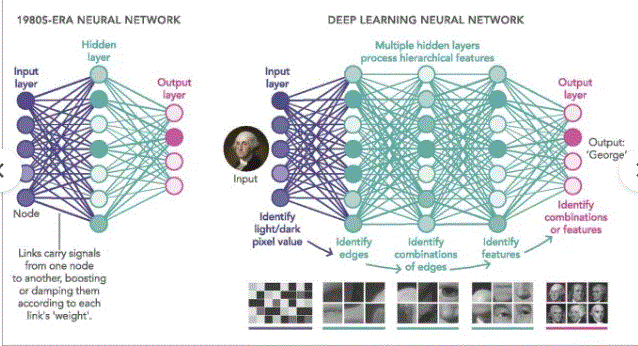Data Collection jobs in Work from Home

Working from home has become increasingly popular in recent years, and data collection jobs are no exception. These types of positions allow individuals to work remotely while still contributing to important research and data analysis projects.
One of the benefits of working as a data collector from home is the flexibility it offers. Many data collection jobs are part-time or contract positions, which means that individuals can work on their own schedule. This can be especially beneficial for those with other obligations, such as caring for children or elderly relatives, or for those who prefer to work at odd hours.
Another benefit of working as a data collector from home is the ability to work on a variety of projects. Many data collection jobs involve working with different types of data, such as customer surveys or market research, which can keep the work interesting and challenging.
To work as a data collector from home, individuals will typically need a computer, internet access, and basic data entry skills. Some positions may also require specific software or equipment, such as a telephone for conducting surveys.
There are various ways to find data collection jobs that allow working from home. Some companies and organizations hire data collectors on a regular basis and post job listings on their websites or on job search platforms. Other companies may work with freelance marketplaces and platforms to find individuals to work on specific projects.
It is also important to be aware of potential scams when looking for data collection jobs that allow working from home. Always research any company or organization before applying for a position, and never provide personal information or payment until you are sure the job is legitimate.
In conclusion, data collection jobs that allow working from home offer a great opportunity for individuals looking for flexible, part-time or contract work. With the right skills, equipment, and job search strategies, you can find a data collection job that fits your needs and preferences.
Kinds of Data Collection Work From Home:

There are a variety of data collection jobs that can be done from home. Here are a few examples:
1- Surveys: One of the most common data collection jobs is conducting surveys over the phone or online. Survey data can be used for market research, customer feedback, and more.
2- Online Research: Some data collection jobs involve conducting research online to gather information on specific topics. This type of work can include data entry, web scraping, and data analysis.
3- Transcription: Some data collection jobs involve transcribing audio or video recordings into written text. This type of work is often done for legal, medical, or research purposes.
4- Social Media Monitoring: Some companies may hire remote workers to monitor and collect data from social media platforms like Facebook, Instagram, Twitter, etc.
5- Data Entry: This job requires a data collector to enter data into a computer system or database. This can include anything from customer information to financial data.
6- Quality Control: Some data collection jobs involve reviewing and evaluating data to ensure it is accurate and complete.
7- Coding: Coding is the process of organizing and labeling data so it can be analyzed. This job requires a data collector to assign codes to different data elements based on predefined rules.
8- Remote Sensing: Remote sensing is the process of collecting data about an object or area without being in direct contact with it. This can include collecting data from aerial or satellite images, or from environmental sensors.
It’s important to note that the specific requirements for each job will vary depending on the employer and the type of data being collected.
More details about the Data Entry job require a data collector to enter data into a computer system or database. This can include anything from customer information to financial data.
Data entry is a critical task in many industries, and it can be done remotely from home. The job of a data entry work is to input information into a computer system or database accurately and efficiently. This can include a wide range of data types such as customer information, financial data, inventory data, and more.
To work as a data entry professional, one needs to have strong typing skills and be familiar with basic computer programs such as Microsoft Office, Google Suite, and similar tools. In some cases, companies may require specific software knowledge such as using database management systems or CRM systems.
The data entry process usually starts with receiving the data in the form of paper documents, audio recordings, images, or other formats. The data entry worker then needs to transcribe the data into an electronic format and enter it into the computer system or database. The data entry worker needs to be meticulous in ensuring that the data entered is accurate and complete.
Data entry jobs can vary in terms of the type of data being entered, the format in which it is received, and the specific requirements of the employer. Some data entry jobs may require a data collector to input specific types of information such as financial data, while others may require inputting customer data.
Data entry jobs often offer flexible hours, and they can be either part-time or full-time positions. They can be a great option for people looking for a flexible work schedule, who want to work from home, and who have strong typing and computer skills.
In conclusion, data entry is a critical task in many industries and it is a job that can be done remotely from home. It requires a high level of attention to detail, fast and accurate typing, and a good understanding of basic computer programs. It can be a flexible and convenient option for people looking for part-time or full-time work.
More details about Social Media Monitoring data collection work from home:
Social media monitoring is a type of data collection job that can be done from home. This job involves monitoring and collecting data from various social media platforms such as Facebook, Twitter, Instagram, and more. The data collected can be used for various purposes such as market research, customer feedback, and brand management.
The main goal of social media monitoring is to gather information about the company, brand, or product being monitored, as well as information about its competitors. The data collected can include metrics such as engagement rates, follower count, sentiment analysis, and more. This information can be used to make data-driven decisions about marketing and advertising campaigns, customer service, and product development.
To work as a social media monitor, one needs to have strong knowledge of social media platforms and be familiar with monitoring tools and software. Some companies may require specific social media platforms knowledge, such as experience with Facebook Ads Manager.
The job of a social media monitor includes monitoring various social media platforms for mentions of the company, brand, or product being monitored, as well as its competitors. They also need to be able to identify key metrics, trends, and patterns in the data collected and report their findings to management or other stakeholders.
Social media monitoring jobs often offer flexible hours and can be either part-time or full-time positions. These jobs can be great for people who are familiar with social media platforms and have an interest in digital marketing or customer service.
In conclusion, social media monitoring is a type of data collection job that can be done from home. It requires knowledge of social media platforms, monitoring tools, and software, as well as the ability to identify key metrics, trends, and patterns in the data collected. It can be a flexible and convenient option for people looking for part-time or full-time work, with an interest in digital marketing or customer service.
where can find data collection work-from-home jobs?
There are several ways to find data collection jobs that allow working from home. Some of the most popular options include:
1- Company websites: Many companies and organizations hire data collectors on a regular basis and post job listings on their websites. You can search for data collection jobs on the websites of companies in your industry or field of interest.
2- Job search platforms: There are many job search platforms such as LinkedIn, Indeed, and Glassdoor that have a large number of data collection jobs listed. These platforms allow you to search for jobs based on location, keyword, and experience level.
3- Freelance marketplaces: Some companies may work with freelance marketplaces such as Upwork, Freelancer, and Fiverr to find individuals to work on specific projects. You can create a profile on these platforms and applications for data collection jobs that match your skills and experience.
4- Referral from friends or family: Ask around, you may know someone who is already working as a data collector or working for a company that hires data collectors and can refer you.
5- Professional associations: Joining professional associations related to your field of interest can also be a good way to find data collection jobs. These associations often have job boards or networking events where you can connect with potential employers.
6- Cold email or Cold-call: You can also reach out to companies in your field of interest and inquire about any data collection job opportunities they may have available.
It’s important to note that some data collection jobs may be advertised as “work-from-home” or “remote” positions, while others may not specifically mention this in the job listing. In such cases, it’s always worth inquiring about the possibility of working from home during the interview process.
In conclusion, there are many ways to find data collection jobs that allow working from home. It’s important to be persistent and to use a variety of job search strategies to increase your chances of finding the right job for you.
Proposals to develop the ability to work as a data collector from home:
There are several proposals that can be developed to improve the ability to work as a data collector from home:
1- Developing a comprehensive training program: Developing a comprehensive training program for data collection can help individuals acquire the skills and knowledge needed to work as data collectors from home. This can include training in data entry, transcription, and data analysis, as well as training in specific software and tools used in the data collection process.
2- Investing in technology: Investing in technology can improve the ability to work as a data collector from home. This can include providing remote workers with necessary equipment such as laptops, high-speed internet access, and software that allows for remote collaboration and communication.
3- Providing support and resources: Providing support and resources to data collectors working from home can help ensure that they have the information and resources they need to be successful. This can include providing access to reference materials, best practices, and other helpful resources.
4- Establishing clear guidelines and protocols: Establishing clear guidelines and protocols for data collection can help ensure that the data collected is accurate, complete, and consistent. This can include guidelines for data entry, data validation, and data quality control.
5- Building a sense of community: Building a sense of community among data collectors working from home can help them feel more connected and supported. This can include regular virtual meetings, online forums or chat groups, and other opportunities for data collectors to connect and collaborate.
6- Providing incentives for working from home: Providing incentives for data collectors working from home can help attract and retain qualified candidates. This can include offering flexible schedules, offering bonuses or other incentives for meeting performance goals, or offering opportunities for advancement.
In conclusion, developing a comprehensive training program, investing in technology, providing support and resources, establishing clear guidelines and protocols, building a sense of community, and providing incentives for working from home are proposals that can be developed to improve the ability to work as a data collector from home. These proposals can help ensure that data collectors have the skills, resources, and support they need to be successful in their work.






One Comment